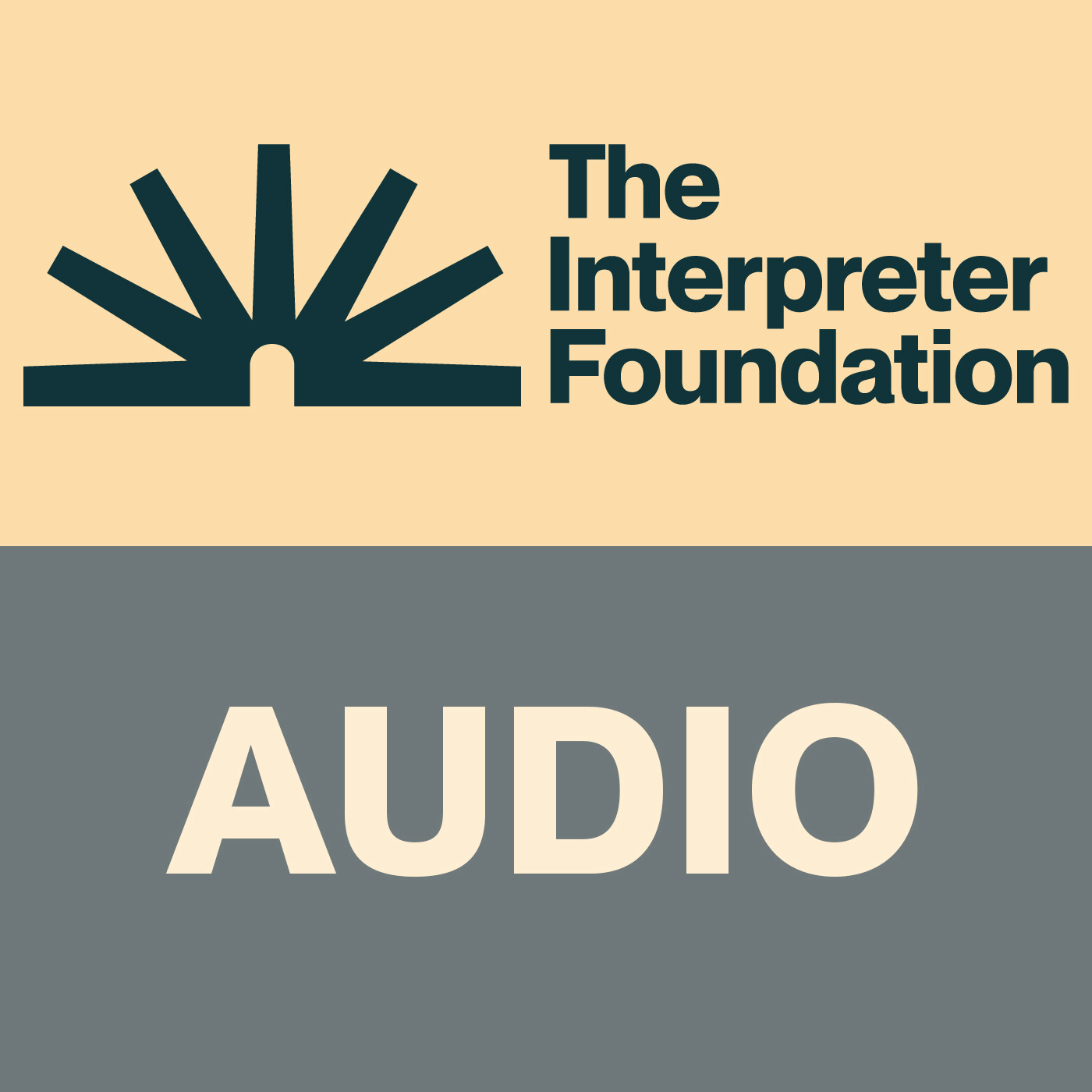Smooth Words and Slippery Things: Samuel the Lamanite’s Prophetic Use of Hebrew ḥlq
Update: 2025-07-11
Description
Abstract: Samuel the Lamanite expressly drew on the words of Isaiah (Isaiah 30:10 ) and possibly Jeremiah (Jeremiah 23:12 ) with a clever, powerful wordplay on forms of the Hebrew verbal root ḥlq: ḥălāqôt (“flattering words,” literally “smooth things”) and ḥălaqlaqqôt (“slippery [things]”) in Helaman 13:28 –36. This wordplay established a genetic relationship between yielding oneself to those who “speak flattering words unto [us]” (Helaman 13:28 ) and material riches and treasures becoming “slippery that [we] cannot hold them” (Helaman 13:31 , 36). This use of smooth/slippery, closely tied to the discussion in the Hebrew Bible of giving heed to false prophets over true prophets, is thus an apt marker of Samuel’s meaning, and perhaps also of his training. Samuel’s pronouncement of this unique curse, linguistically correlated with rejecting prophetic words, described a loss of worldly wealth and vividly depicted the accompanying spiritual desolation of slippery ways and dark places. Mormon and Moroni offered their latter-day readers a way out of the cycle of “slippery” possessions and destruction that befell the Jaredites and the Nephites: Jesus Christ, who showed us how to lay up treasures in heaven. Mormon’s preservation of Samuel’s prophetic wordplay stands as a significant, additional confirmation of the ancient provenance of the text.
Unlike the antichrists, false prophets, and other deceivers who came from outside the Nephite community to destroy faith (see Helaman 13:37 –38), Samuel the Lamanite spoke from the walls of Zarahemla as a witness of Jesus Christ, the God of Israel from whom [Page 94]the Nephites were apostatizing and whom they were actively betraying. Politically a stranger, he stood at the edge of the city against the armed assaults of the enraged Nephites within. Yet, he was no stranger to their history, their scripture, and their supposedly identity-defining relationship with the Lord. He, himself, embodied it. From the walls of Zarahemla, Samuel delivered a sermon that is a masterclass in the use of prophetic rhetoric,1 including the use of a Hebraistic wordplay that giving heed to “flattering words”/“smooth things” (ḥălāqôt) would bring the spiritual loss and ruin evoked by the image of ḥălaqlaqqôt (“slippery [things],” Helaman 13:28 –36).
In this study I argue that Samuel the Lamanite quoted Isaiah 30:10 , and possibly also alluded to Jeremiah 23:9–12 and the Psalms, in a marvelous wordplay on forms of the root ḥlq (hereafter noted with √): ḥălāqôt (“flattering words,” literally “smooth things”) and ḥălaqlaqqôt (“slippery [things],” sometimes also spelled ḥălāqôt). This wordplay is strongly associated with the context of responding to the prophetic word. It establishes a genetic relationship between the love of and hearkening to those who “speak flattering words unto [us]” (Helaman 13:28 ) and the strikingly unique curse of riches and treasures (material possessions) becoming “slippery that [we] cannot hold them” (Helaman 13:31 , 36; see also Helaman 13:33 ; Mormon 1:18 –19; 2:10 ; Ether 14:1).
A Methodological Note
For the purposes of my thesis, I assume that the language or dialect in which Samuel the Lamanite delivered his speech in Zarahemla was a Nephite variant of Hebrew. As preserved in Mormon’s record, Samuel demonstrates a deft command of the various biblical Hebrew prophetic conventions.<a id="footnote2anc" href="#footnote2sym" title="2. Parry, “Thus Saith the Lord,” 181–83.
Unlike the antichrists, false prophets, and other deceivers who came from outside the Nephite community to destroy faith (see Helaman 13:37 –38), Samuel the Lamanite spoke from the walls of Zarahemla as a witness of Jesus Christ, the God of Israel from whom [Page 94]the Nephites were apostatizing and whom they were actively betraying. Politically a stranger, he stood at the edge of the city against the armed assaults of the enraged Nephites within. Yet, he was no stranger to their history, their scripture, and their supposedly identity-defining relationship with the Lord. He, himself, embodied it. From the walls of Zarahemla, Samuel delivered a sermon that is a masterclass in the use of prophetic rhetoric,1 including the use of a Hebraistic wordplay that giving heed to “flattering words”/“smooth things” (ḥălāqôt) would bring the spiritual loss and ruin evoked by the image of ḥălaqlaqqôt (“slippery [things],” Helaman 13:28 –36).
In this study I argue that Samuel the Lamanite quoted Isaiah 30:10 , and possibly also alluded to Jeremiah 23:9–12 and the Psalms, in a marvelous wordplay on forms of the root ḥlq (hereafter noted with √): ḥălāqôt (“flattering words,” literally “smooth things”) and ḥălaqlaqqôt (“slippery [things],” sometimes also spelled ḥălāqôt). This wordplay is strongly associated with the context of responding to the prophetic word. It establishes a genetic relationship between the love of and hearkening to those who “speak flattering words unto [us]” (Helaman 13:28 ) and the strikingly unique curse of riches and treasures (material possessions) becoming “slippery that [we] cannot hold them” (Helaman 13:31 , 36; see also Helaman 13:33 ; Mormon 1:18 –19; 2:10 ; Ether 14:1).
A Methodological Note
For the purposes of my thesis, I assume that the language or dialect in which Samuel the Lamanite delivered his speech in Zarahemla was a Nephite variant of Hebrew. As preserved in Mormon’s record, Samuel demonstrates a deft command of the various biblical Hebrew prophetic conventions.<a id="footnote2anc" href="#footnote2sym" title="2. Parry, “Thus Saith the Lord,” 181–83.
Comments
In Channel





